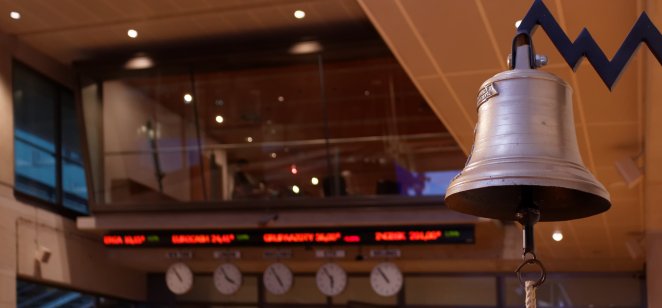Can You Explain What the Opening Bell Is?
Sep 25, 2022 By Triston Martin
When the opening bell rings, it's time for the stock market to start for the day. Each stock market has its opening bell procedure and time. The New York Stock Exchange's opening bell is the most well-known since it marks the beginning of trading on Wall Street.
How To Understand the Opening Bell

The opening bell has signaled the start of trading on the New York Stock Exchange (NYSE) every day since 1985. Each trading day on the NYSE begins with the sound of a real bell and an electronic ringer.
Since there is no actual trading floor at the Nasdaq stock exchange, the opening bell has taken on a more symbolic meaning. Since the advent of computerized trading, physical trading floors have gradually faded into obscurity.
The opening of a market is known as "the bell" in the terminology of investors and dealers. Ringing the actual opening bell has become a ceremonial ritual, usually reserved for visiting dignitaries or new firms beginning trading that day.
The Opening Bell: How Does It Function?

The principal purpose of the bell is to announce the opening of trade in a stock market. Depending on the transaction, the number of bells utilized may differ. For instance, the New York Stock Exchange has four opening bells controlled from the exact location.
Ringing the opening bell at a stock market not only kicks off the trading day but also provides a chance for the visitor or company to be featured in the media. An official from a freshly public firm will often ring the opening bell.
A famous person may ring the opening bell on certain days. For example, on August 10, 2021, Olympic water polo player Ashleigh Johnson rang the New York Stock Exchange opening bell to celebrate her second gold medal at the Olympics.
Buying and Selling Before the Market Opens
Before the opening bell, traders can participate in pre-market trading on several exchanges. Traders and investors with access to extended session trading can now transact with one another.
There must be a perfect quantitative and temporal fit in every trade. This might cause orders placed during these times to be priced less competitively and filled more slowly. This leads to declining attendance at these sessions and, therefore, the trading community.
The release of profits stands out as an important exception. An out-of-the-ordinary trading frenzy may occur on a stock before the market opens if the firm reports quarterly earnings early.
Key Events
When the market began 24-hour trading in the 1870s, traders began ringing an opening bell to signal the start of the trading day. In 1903, an electric bell replaced the last bell.
When the current computerized system needed a backup, the New York Stock Exchange refurbished a bell from 1903. In 1956, a 10-year-old called Leonard Ross was the inaugural guest ringer, and now the bell is typically rung by entrepreneurs, CEOs, and other noteworthy persons. Ross placed first on a financial television quiz program to get recognition.
Effects of Pre-Market and After-Hours Trading on Stock Prices
The reduced number of traders present during pre-market and after-hours trading creates a lack of liquidity and a correspondingly lower transaction volume. Although this is the case, stock prices often behave similarly to how they do throughout the trading day. Changes in price from trading during non-standard hours may persist until the following regular trading session.
Tips For Locating After-Hours Market Information
If an investor has access to a data service through their brokerage account, they should first check there for updates on pre-market and after-hours trading. The most comprehensive after-hours market trading data is often provided through broker information services, typically offered at no cost to those with a brokerage account.
In addition to doing transactions within this time frame, investors will often also be able to view relevant market data, such as the current bid, and ask for a particular security and the percentage change in price from the previous trading day.
Individual Investors: What This Means
Ringing the opening bell there at New York Stock Exchange is an excellent chance for publicity, but there is no evidence to show that it has any real impact on a company's stock price. Stock prices tend to rise if the NYSE business that rings the opening bell is celebrating its debut on the exchange. On the other hand, there may be causes apart from the bell's chime.








